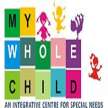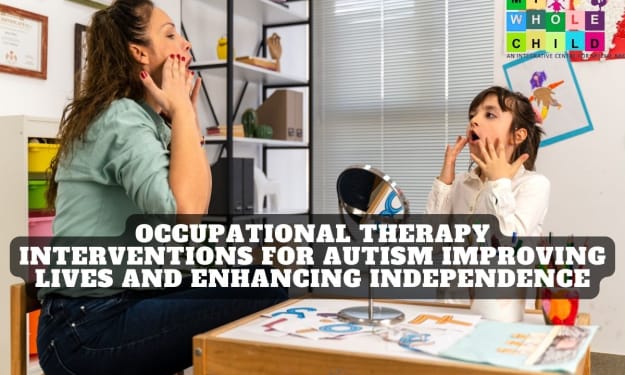The Power of Early Intervention: Unlocking Potential and Changing Lives
Early Intervention

Introduction
Early intervention is a dynamic and proactive strategy that aims to identify and address challenges or developmental delays in individuals as early as possible. By intervening early, professionals and caregivers can provide the necessary support, resources, and therapies to maximize the potential for growth and development. This article delves into the world of early intervention, shedding light on its importance, benefits, and real-life applications. Join us on this journey as we explore the transformative power of early intervention.
The Power of Early Intervention
Early intervention has the potential to revolutionize lives and pave the way for a brighter future. By identifying and addressing challenges early on, individuals can receive the support they need, setting them on a path toward success. Let's delve into the various aspects of early intervention and discover how it can make a significant impact.
1. Early Identification: Recognizing Challenges and Delays
Early intervention begins with the crucial step of early identification. Professionals, educators, and caregivers must be vigilant in recognizing potential challenges or developmental delays. By identifying these issues promptly, individuals can receive the necessary interventions and support tailored to their specific needs.
2. Tailored Approach: Individualized Interventions
One of the key strengths of early intervention lies in its ability to provide individualized support. Each person is unique, and their challenges or delays require personalized interventions. Early intervention professionals work closely with individuals and their families to develop tailored strategies that address specific areas of concern, maximizing the chances of positive outcomes.
3. Holistic Development: Addressing Multiple Domains
Early intervention takes a holistic approach, focusing on all areas of development. Whether it's cognitive, social, emotional, or physical development, early intervention programs strive to address multiple domains simultaneously. By nurturing these different aspects, individuals can experience well-rounded growth and reach their full potential.
4. Collaboration and Support: A Team Effort
Early intervention is a collaborative effort involving professionals, caregivers, and the community. Through close collaboration and support, individuals receive comprehensive care and guidance. This team approach ensures that all aspects of a person's development are considered, leading to more effective interventions and positive outcomes.
5. Family Involvement: Empowering Caregivers
Family involvement is a vital component of early intervention. Caregivers play a crucial role in a person's development, and early intervention programs recognize the significance of their involvement. By empowering and equipping caregivers with the necessary knowledge and skills, families become active participants in the intervention process, fostering continuous growth and progress.
6. Timely Support: Seizing the Critical Window
Early intervention operates within a critical window of opportunity. During early childhood, the brain is highly malleable and responsive to interventions. By seizing this window and providing timely support, early intervention maximizes the potential for positive outcomes. The sooner interventions are implemented, the greater the chances of overcoming challenges and reaching developmental milestones.
7. How can I determine if my child needs early intervention?
If you notice any developmental delays or challenges in your child, it's important to consult with professionals such as pediatricians, educators, or early intervention specialists. They can conduct assessments and evaluations to determine if early intervention services are necessary.
8. What types of professionals are involved in early intervention?
Early intervention involves a multidisciplinary team of professionals, including speech therapists, occupational therapists, physical therapists, psychologists, special education teachers, and social workers. These professionals collaborate to provide comprehensive support based on the individual's needs.
9. Are early intervention services only for children with disabilities?
No, early intervention is not limited to children with disabilities. It also encompasses support for children who may have developmental delays or are at risk of experiencing challenges in their growth and development. Early intervention aims to address a wide range of needs and promote optimal development for all children.
10. How long does early intervention last?
The duration of early intervention services varies depending on the individual's needs and progress. It can range from a few months to several years. The goal is to provide support and interventions until the individual achieves their developmental milestones or reaches a level where they can thrive independently.
11. What are some success stories of early intervention?
Numerous success stories highlight the transformative impact of early intervention. For example, a child with speech delays who receives early speech therapy may overcome their communication challenges and excel academically. Another success story could involve a child with motor skill difficulties who, through occupational therapy, gains the necessary skills to participate fully in daily activities.
Frequently Asked Questions
Here are some commonly asked questions about early intervention:
1. What is the ideal age for early intervention?
A. Early intervention is most effective when implemented during the critical developmental stages of early childhood, typically from birth to three years of age. However, interventions can still be beneficial beyond this age range, and it's never too late to seek support.
2. How can I determine if my child needs early intervention?
A. If you notice any developmental delays or challenges in your child, it's important to consult with professionals
Conclusion
Early intervention is a powerful strategy that unlocks human potential and changes lives. By identifying challenges early, providing individualized interventions, and fostering holistic development, early intervention sets the stage for success. Through collaboration, family involvement, and timely support, individuals can overcome obstacles and reach their full potential. Embracing early intervention is a proactive step towards a brighter future, paving the way for a society where every individual can thrive.
About the Creator
MyWhole Child
If you looking for best special education centre in Delhi, MyWholeChild is perfect place for you. This Centre has been developed under the guidance of paediatric faculty from the USA and India to provide a platform to maximize






Comments
There are no comments for this story
Be the first to respond and start the conversation.